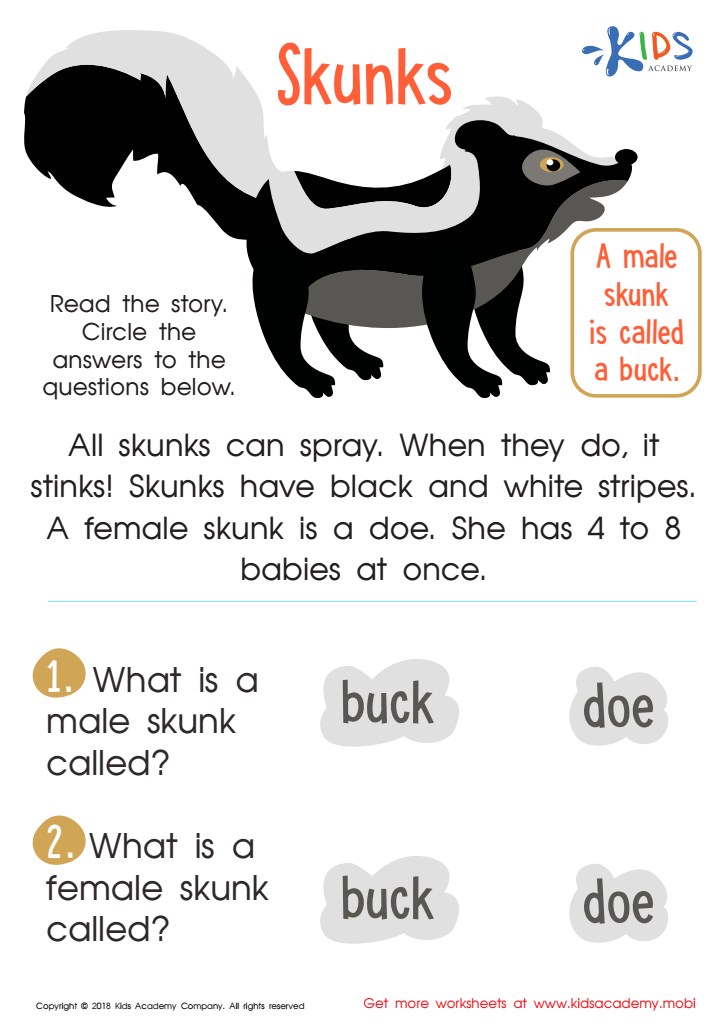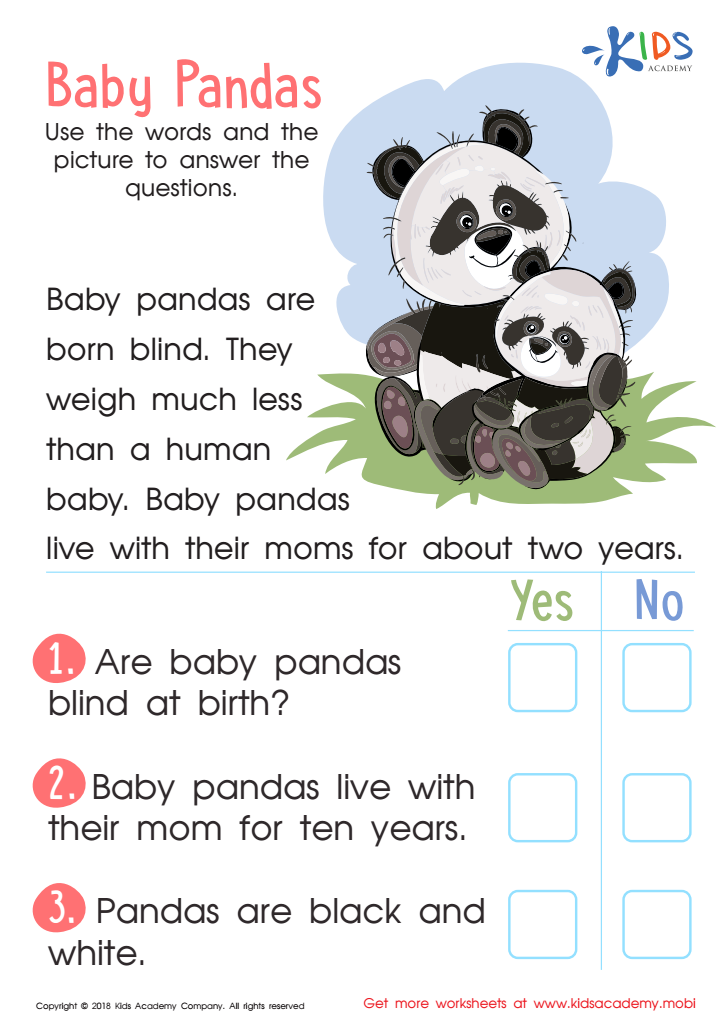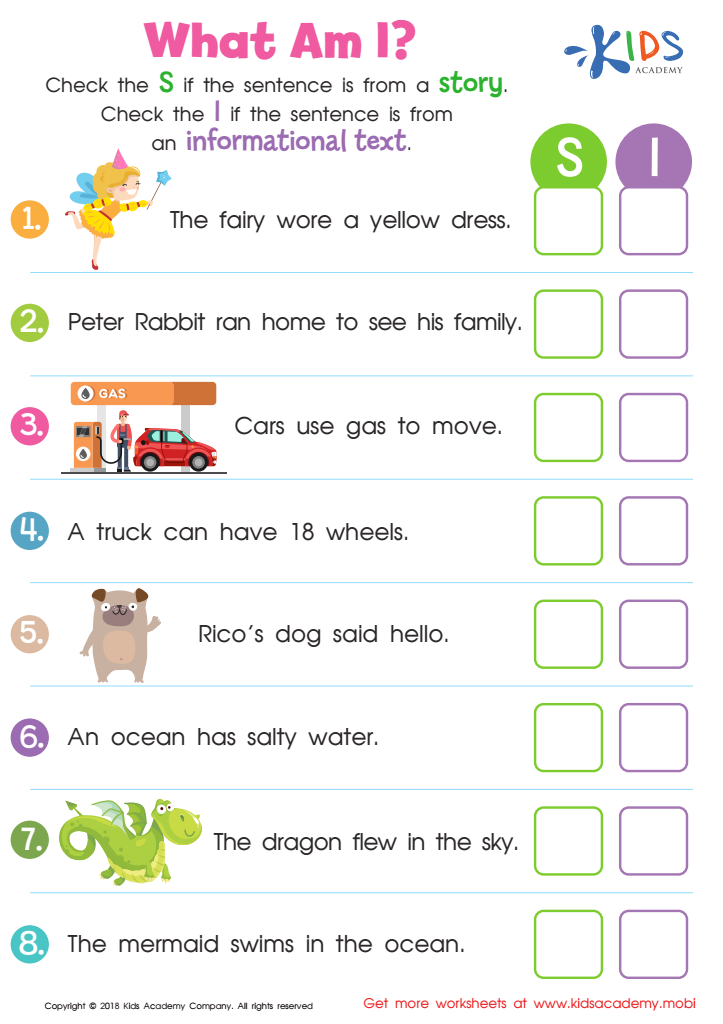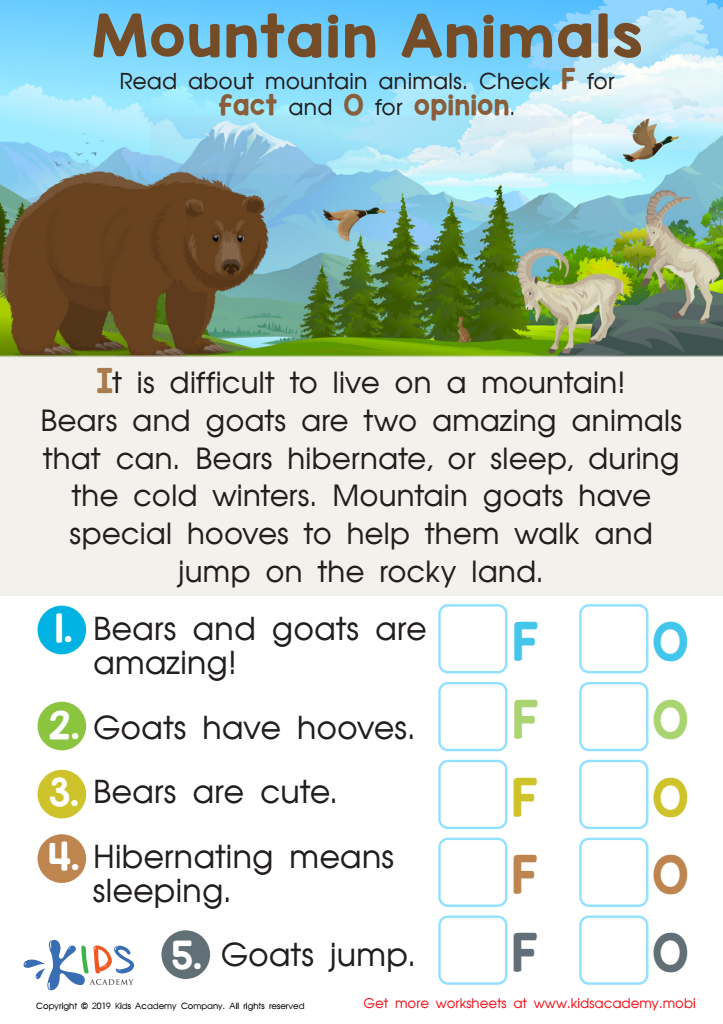Animal identification Reading Non-Fiction Worksheets for Ages 6-9
4 filtered results
-
From - To
Explore our engaging Animal Identification Reading Non-Fiction Worksheets designed specifically for children aged 6-9! These worksheets aim to enhance reading comprehension and vocabulary skills through fascinating facts about the animal kingdom. Each worksheet features vibrant images and informative texts that inspire young learners to identify various animals and understand their habitats, characteristics, and behaviors. Ideal for both classroom and home learning, our resources foster curiosity and promote a love for reading. Whether your child is an aspiring zoologist or simply curious about wildlife, these exciting worksheets provide the perfect blend of education and fun! Start your animal adventure today!


Skunks Worksheet


Baby Pandas Worksheet


What Am I? Worksheet


Mountain Animals Worksheet
Animal identification reading, particularly in non-fiction, is a crucial educational tool for children aged 6-9. At this age, children are naturally curious about the world around them, making it an ideal time to introduce them to the complexities of animal life. Understanding how to identify different animals not only satisfies their curiosity but also enhances their cognitive skills.
Non-fiction texts provide accurate information, helping children learn facts about various species, their habitats, diets, and behaviors. This knowledge fosters a sense of empathy and respect for living creatures, instilling foundational values about wildlife conservation and environmental stewardship.
Additionally, animal identification reading supports literacy development. As children engage with real-life content, they improve their vocabulary, reading comprehension, and critical thinking skills. Through illustrations and diagrams, they develop visual literacy, learning to interpret and analyze information effectively.
Moreover, these texts can spur discussions between parents and teachers, encouraging collaborative learning and deeper engagement with the subject matter. By nurturing a child’s interest in animals, parents and teachers can stimulate a lifelong passion for nature, science, and reading, ultimately contributing to well-rounded development.

 Assign to My Students
Assign to My Students





















